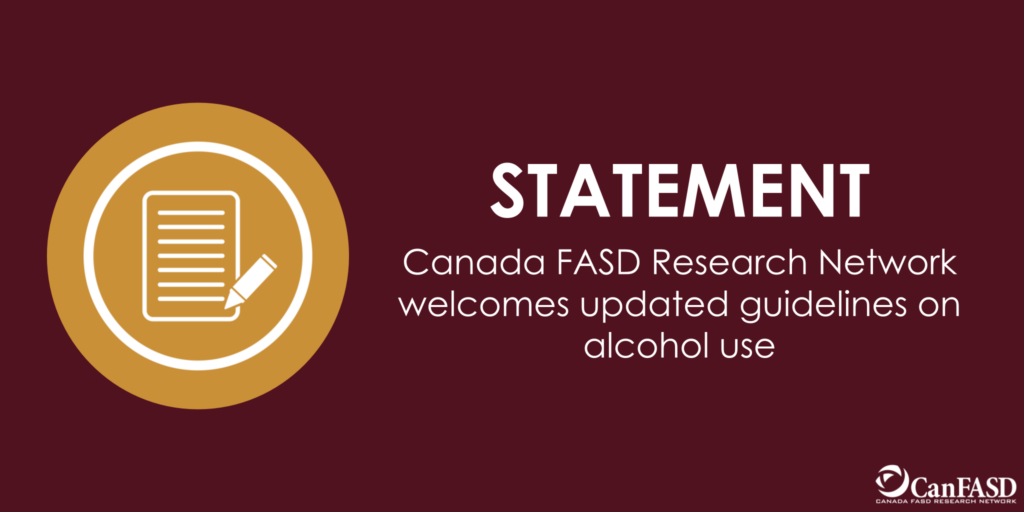Media Statement: January 19, 2022
The Canada FASD Research Network (CanFASD) supports the CCSA’s new guidance on alcohol use and health released this week.
“The evidence surrounding alcohol harms has increased significantly since the last iteration of Canada’s Low-Risk Alcohol Drinking Guidelines in 2011,” says CanFASD Executive Director, Audrey McFarlane. “We are pleased to see that Canada is taking a harm reduction approach to alcohol and making sure Canadians have the knowledge they need to make informed decisions, specifically around alcohol use in pregnancy.”
In addition to emphasizing the risk of alcohol-related cancers, the new guidance states that it is safest not to use alcohol when pregnant, trying to get pregnant, or breastfeeding. This is in alignment with copious research that has been done on fetal alcohol spectrum disorder (FASD), a lifelong disability that impacts the brain and body of someone who was exposed to alcohol before birth.
“Despite decades of evidence building, information sharing and creation of community- based supports, many people are still unaware of the risks of alcohol use in pregnancy,” says Dr Nancy Poole, Prevention Lead for the CanFASD Research Network. “It is essential that we continue to share the message that no alcohol is safest in pregnancy.”
Alcohol use in pregnancy can increase the risk of miscarriage and can cause harm to the fetus at any time during pregnancy. Since pregnancies can go unrecognized during the first several weeks post-conception, the updated guidance recommends couples who are actively trying to get pregnant go alcohol-free too.
These evidence-based guidelines outline the continuum of risk associated with alcohol use. Each person can use the information to consider what the risk levels mean for them personally and to make informed decisions about how much they will drink. The main message being that when it comes to your health, less alcohol is better.
The CCSA conducted this work in consultation and collaboration with researchers, experts, and stakeholders across Canada, including members of the CanFASD Network. To learn more about the project and the final report, read the updated webpage on alcohol and health.
There is no known safe level of alcohol use in pregnancy, so it is safest not to drink when pregnant.
